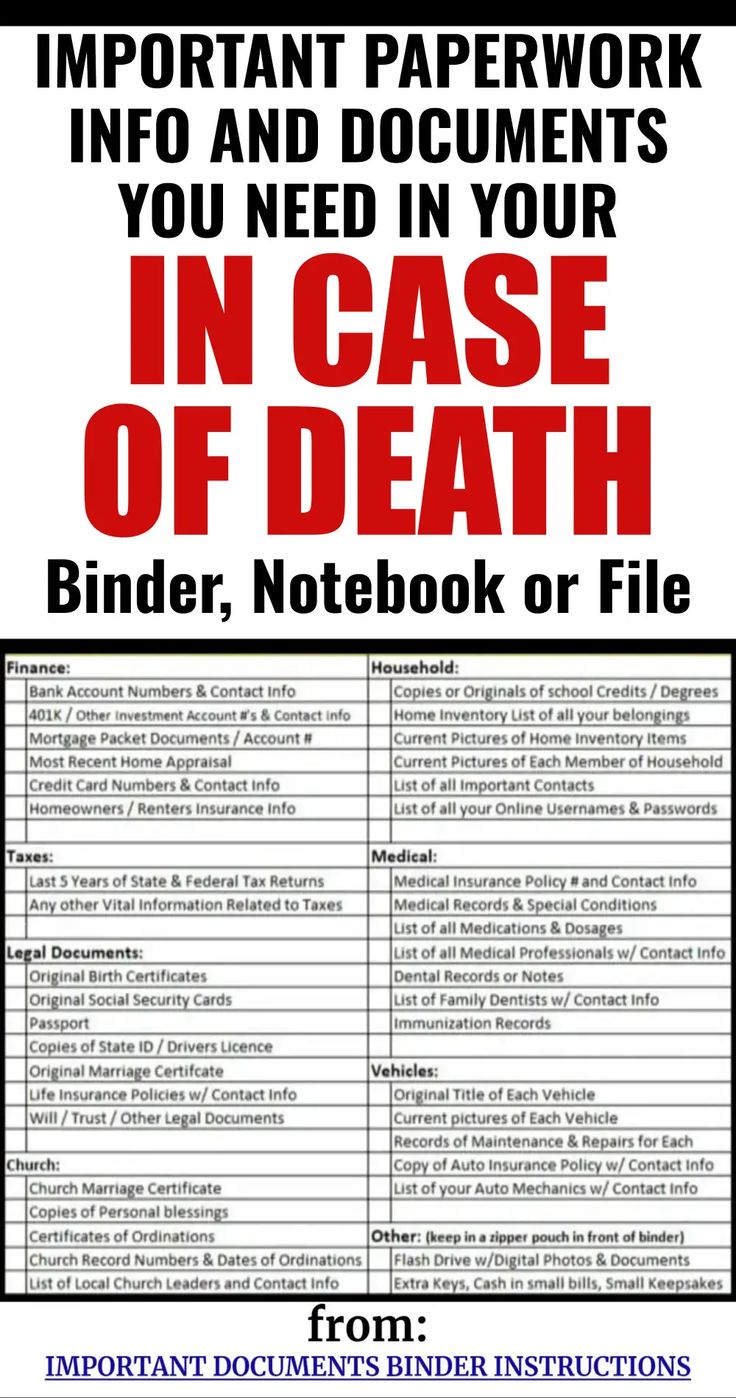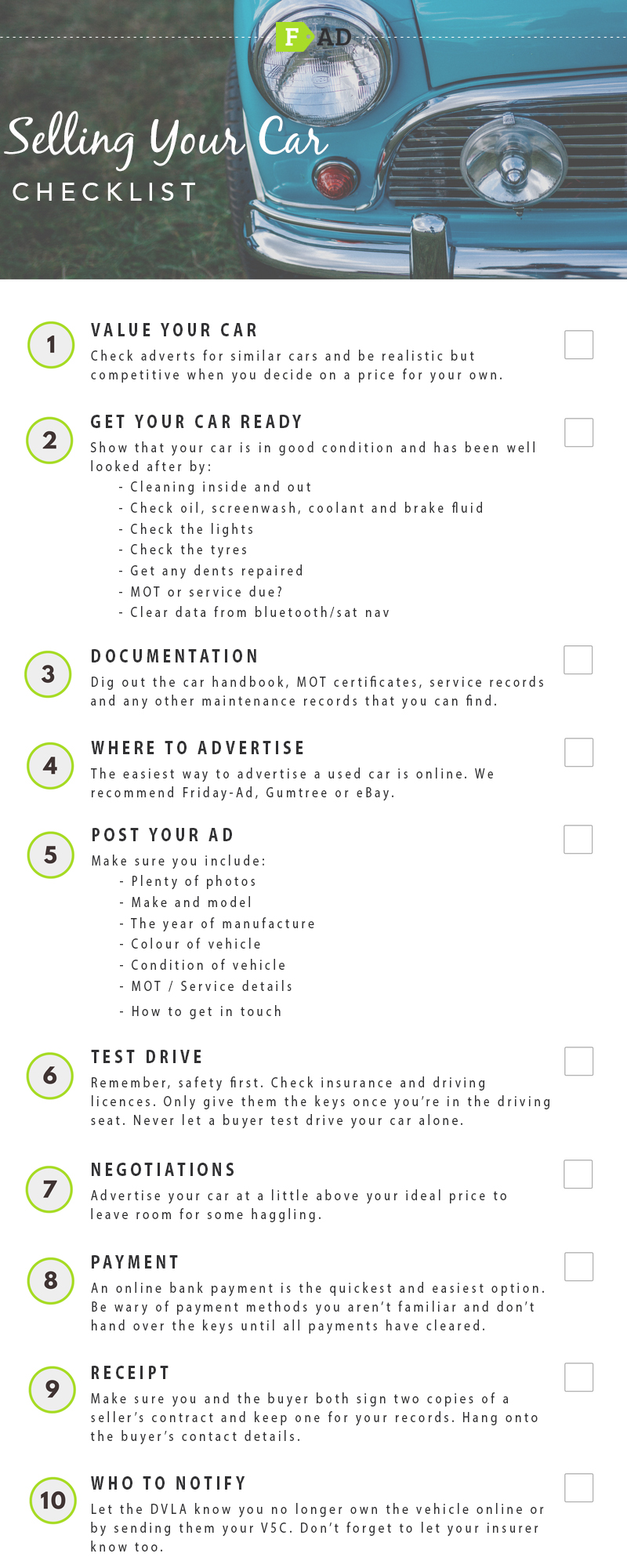Essential Paperwork for Selling Your Car: Checklist Included

The world of car sales can be both exciting and daunting, particularly when you’re on the selling side. Whether you're moving to a new city, looking to upgrade your vehicle, or simply wanting to declutter your life, selling your car involves more than just shaking hands and trading keys. One of the critical steps in this process is ensuring you have all the necessary paperwork in order. This article will guide you through the essential paperwork needed to sell your car effectively, provide a handy checklist, and offer insights into what to do when complications arise. Let's dive in to make sure you're ready to close the deal without a hitch.
Prepare the Basics: Ownership Proof

Before you even think about advertising your car for sale, you need to confirm you can legally sell it. Here’s what you’ll need:
- Car Title: This document proves you own the vehicle. If there’s a lien on the car (e.g., an outstanding loan), you’ll also need the release from the lienholder.
- Vehicle Registration: This shows that the car is legally registered in your name and not expired.
- Bill of Sale: Although not always mandatory, having this document can provide clarity on the terms of sale, including purchase price, and serves as proof of transfer of ownership.
⚠️ Note: If your car title is lost, you'll need to apply for a replacement. The process can take time, so start early.
Maintenance and Service Records

Potential buyers often prioritize vehicles with a well-documented service history. Here’s what you should gather:
- Regular maintenance records.
- Receipts from repairs and parts replacements.
- Emissions and safety inspection certificates, if applicable.
- Original warranty documents.
- Extended warranty details, if any.
- Proof of warranty transferability, as this could affect the sale.
- Obtain a report from a reputable service like Carfax or AutoCheck.
- Include details like title history, odometer readings, service records, and any reported accidents.
- It’s typically provided by the DMV or equivalent agency.
- It ensures you’re not held responsible for any future issues with the car.
- Insurance Documents: Proof of current insurance coverage.
- Owner’s Manual: Provides invaluable information about the car’s operation and care.
- Keys and Fobs: All keys and key fobs should be present, as their absence could lower the car’s value or complicate the sale.
- Extra Features: Titles or receipts for any aftermarket parts or accessories added to the vehicle.
- Organize all paperwork in a clear, logical manner.
- Ensure your vehicle is clean and in good condition to match its paperwork.
- Prepare yourself for common buyer questions and objections.
- Outstanding Loans: You’ll need to provide a lien release or payoff letter showing the loan is cleared or will be upon sale.
- Salvage Titles: If your car has a salvage or rebuilt title, make sure to provide all documents related to the rebuild process.
- Paperwork Lost or Incomplete: If any key documents are missing, follow state procedures for replacements or accept notarized affidavits as alternatives.
| Type of Record | Description | Why It's Important |
|---|---|---|
| Maintenance | Oil changes, tire rotations, brake services | Demonstrates proactive care |
| Repairs | Receipts for replacement parts or repairs | Shows investment in maintaining the car's condition |
| Inspections | Emissions and safety checks | Verifies the car's legal roadworthiness |

Warranty Documentation

If your car is still under warranty, you have a valuable selling point. Gather:
🧾 Note: Ensure the warranty is transferable. Some manufacturers may require specific steps to be taken before the warranty can be transferred to a new owner.
Vehicle History Reports

A vehicle history report can significantly increase buyer confidence. Here’s how you can prepare:
The Release of Liability

This document is crucial for transferring responsibility for the vehicle. Here are the key points:
Miscellaneous Documents

These additional documents can smooth out the selling process:
Key Steps Before You Sell

Before advertising your car, take these proactive steps:
Navigating Potential Complications

Selling a car isn’t always straightforward. Here are a few scenarios where extra documentation or steps might be necessary:
🔍 Note: When in doubt, consult with your local DMV or a legal advisor for advice specific to your situation.
To assist you further, here's a comprehensive checklist to ensure you've got all your paperwork in order:
| Document | Status |
|---|---|
| Car Title | |
| Vehicle Registration | |
| Bill of Sale | |
| Maintenance and Service Records | |
| Warranty Documents | |
| Vehicle History Report | |
| Release of Liability | |
| Insurance Documents | |
| Owner’s Manual | |
| All Keys and Fobs | |
| Extra Features Receipts |
In closing, selling your car involves meticulous preparation. By ensuring you have all the necessary paperwork in order, you're setting the stage for a seamless transaction. Not only does this preparedness instill confidence in potential buyers, but it also reduces the likelihood of complications down the road. Remember, each piece of paperwork is a step toward a successful sale, protecting both your interests and those of the buyer. With this guide, you're well-equipped to navigate the process, from the first handshake to the final transfer of ownership.
What should I do if my car title is missing?

+
If your car title is missing, apply for a replacement through your local DMV. This process can take a few weeks, so ensure you start early. You’ll need to provide proof of ownership and might need to notarize documents.
How do I transfer a car title with an outstanding loan?

+
If there’s an outstanding loan, you’ll need to provide a lien release from your lender showing the loan has been paid off or will be upon the sale of the vehicle. In some cases, the lienholder may have to sign off on the title transfer.
What happens if the buyer finds issues after the sale?

+
Ensure you have a signed release of liability form to prevent liability for post-sale issues. This document transfers the responsibility for the vehicle to the new owner, but clear communication and warranties can mitigate disputes.



